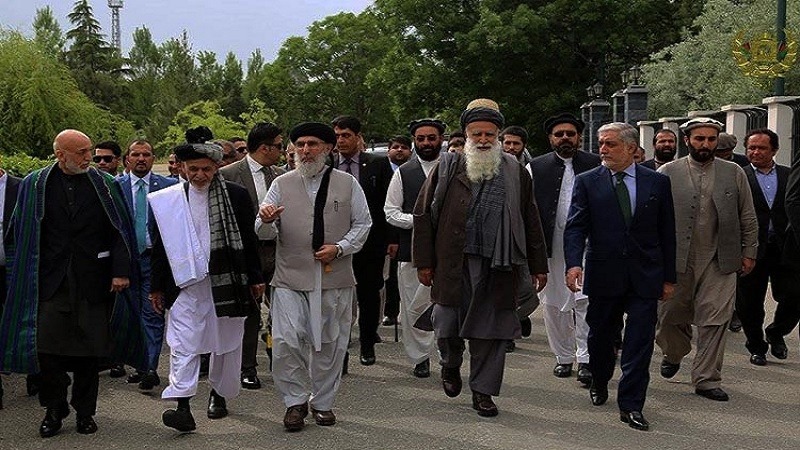Speaking in an interview with the website of the Strategic Council on Foreign Relations, Dr. Rouhollah Eslami, referring to the Taliban’s efforts to establish a unified government in Afghanistan, said: Afghanistan is one of the countries that moved very far from modernity, and this movement took shape due to the pressures. In fact, ethnic groups still have a lot of power in that country, and even the president, who was expected to take steps towards nation-building, had his emphasis over ethnicities.
Saying that 14 ethnicities have been recognized in the constitution of Afghanistan and they have not been able to move towards nation-building so far, he added: Afghanistan is at the bottom of the table in terms of development indicators. One-third of the country’s population live in cities and two-thirds in rural areas. Forty percent of the country’s population work in the agriculture sector, and about 20 percent are active in planting and harvesting opium, with life expectancy in that country is 60 years.
Main axis of socio-political developments
The university professor described ethnocentrism as the main axis of socio-political developments and enjoyment of the rights and privileges in Afghanistan and said: In all political systems that have been established in that country so far, ethnicity has been centralized and the division of power and positions in all those political systems have been based on ethnicity. There are ethnicities in that country that have replaced political parties and ways of distributing power in modern systems. This issue in itself causes dissatisfaction of the citizens, and they, in expressing their dissatisfaction, express it through their own people.
He stressed: Ethnic management has been implemented many times in Afghanistan and has failed each time.
Recalling that the Taliban are also using the issue of ethnicity to advance their objectives, Eslami added: Most of the Taliban are Pashtuns and 60% of the Pashtuns live in Pakistan. Their beliefs and practices should be analyzed on the basis of three elements: tribal importance, religious beliefs, and trophy.
Explaining the Taliban’s utilitarian and appearancist perceptions of Islamic teachings in various fields, as well as extending the concept of spoils of war to home, wealth, women and children who live there, he said: Although the governments that have been formed so far have put ethnocentrism at the top of their agenda, the Taliban have shown more monopoly and violence in that area; they clearly do not have a good relationship with the Shiites and Hazaras, and we have an experience of their genocide record, while they speak Dari and are hostile to the Tajiks.
The analyst of Afghanistan affairs pointed to the Taliban’s way of governing and said: The Taliban have a classical political mindset and their rule is based on the ‘Emirate’ and people should pledge allegiance to the “emir” who installs a ruler everywhere and considers the new methods of governing as blasphemous.
Saying that the current government in Afghanistan could be one of the alternatives to the Taliban government in that country, Eslami added: This administrative system has strong roots in big cities and therefore the Taliban has not been able to win in those areas; unfortunately, Ashraf Ghani also behaved ethnically and by distancing himself from the Mojahedin, he did not turn to Persian speakers at all and was completely influenced by the United States.
He described the Mojahedin as the second group with the potential to come to power in Afghanistan and explained: In the past, they had a lot of power and ruled parts of the country; unfortunately, Ashraf Ghani’s government weakened them and they either left the country or were assassinated; although we are now witnessing efforts to revive them, however they are still not strong enough.
The university professor described civil society organizations, youth, women and the educated, and the modern spectrum of Afghanistan as another influential group in the country, pointing to their inability to be present on the battlefield, he said: The main conflict between the central government is the Taliban and the Mojahedin, and the majority of the people are passively and neutrally waiting for the outcome. Under such circumstances, Afghanistan seems to be entering a period of civil war. Such a war may not have happened in the past, but now it has because of ethnic, urban divisions, and the fragmentation of Afghanistan.
Best and worst scenario
Regarding the proper governance in Afghanistan, Eslami said: A scenario could be a coalition of the central government with the Mojahedin, according to which the central government will continue to survive with the same constitution. Certainly, in those circumstances, we will witness suicide and terrorist operations in that country; but over time, if the government can pass this period, stability will prevail and it will stand on its own feet. A national government should be formed in that country, and this is the best scenario which could be imagined for Afghanistan.
He called the rise of the Taliban and the creation of insecurity, extremism and the removal of the republic the worst-case scenarios facing the country, adding: Some are talking about another scenario in which Pashtun-populated areas close to Pakistan form a state and other parts form another country. Of course, this does not seem to be the case, and we will more see war, conflict and chaos in that country.
Referring to the geographical location of Afghanistan as well as foreign interventions in it, Eslami said: If international powers stop intervening in that country, neighboring countries may be able to design a process which will pave the way for stability in Afghanistan. However, this will be very difficult and it seems that Afghanistan has entered a long period of civil war, chaos and disorder.










0 Comments